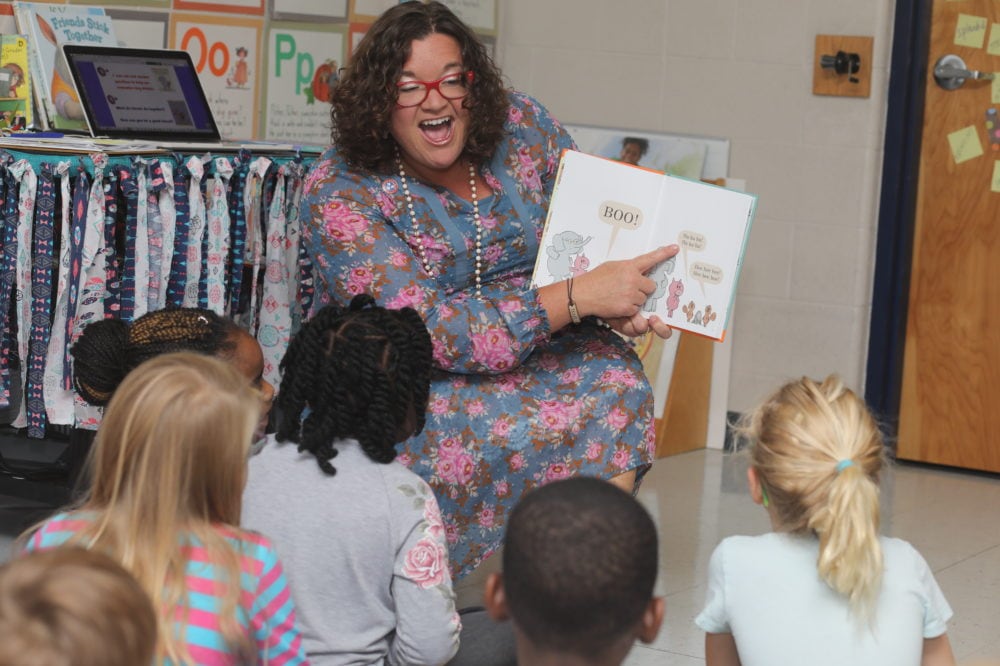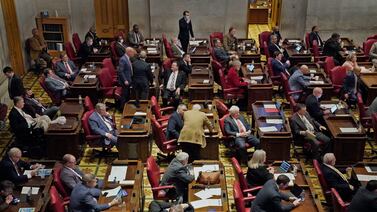Facing a budget shortfall of up to $1.5 billion, Gov. Bill Lee’s administration on Thursday released a revised spending plan that eliminates a planned 2% salary increase for Tennessee teachers.
The nearly $58.7 million already approved by the legislature for teacher raises is among $265.4 million in proposed reductions to the state budget that takes effect on July 1.
The change would affect the increase approved by lawmakers in March — not base pay that teachers already receive, said Butch Eley, Lee’s finance chief.
“We had no choice really … [but] to pull those back,” Eley said of the extra compensation.
The reduction comes four months after Lee proposed a 4% pay hike and vowed to make Tennessee the best state in America to be a teacher. It would mark the first major education investment that Lee has sought to renege on — but under extraordinary circumstances.
In March, the governor slashed most of the initiatives he had proposed for this year before the new coronavirus created a public health emergency and sidelined many businesses across Tennessee. He and the legislature kept a 2% teacher pay raise, hoping that it would stick.
But a shocking drop in revenues this spring and uncertainty about the economic outlook now require deep cuts in the state’s $39 billion spending plan.
“We need to have a lot of flexibility in how we attack this problem and the tough decisions we’re facing now,” Eley told the Senate Finance Committee.
Other state funding for schools appears to be safe, though.
Eley reiterated the governor’s statement last week that his administration is committed to preserving current funding levels through the formula known as the Basic Education Program, or BEP — Tennessee’s second highest expense.
Still in the air, though, are several million dollars set aside to administer Tennessee’s school voucher program under a 2019 education savings law that has since been overturned by a Nashville judge.
On Thursday, the Tennessee Supreme Court declined to review the case, effectively blocking the program from kicking off in August. As a result, Eley said, the governor has delayed the program’s planned launch to the fall of 2021.
“The governor is still committed to funding this program,” Eley told the House Finance Committee later Thursday.
The voucher program’s fate now lies with the state Court of Appeals, where arguments are set for Aug. 5.
Should the appeals court side with the state and overturn the lower judge’s ruling, Lee wants to keep funding in the 2020-21 budget to roll out the program for next year. Finance director David Thurman estimated the cost for setting up the program at about $2 million.
Before the Supreme Court’s decision was released, Lee’s revised budget already had more than halved the $41 million allocated for “education choice.” The reduction was based on a projected enrollment in the program’s first year of 2,000, instead of the maximum 5,000 approved by the legislature.
Senate Minority Leader Jeff Yarbro asked Eley why any voucher funding was being retained, given the state’s dire finances, the law being declared unconstitutional, and the governor’s decision to start the program a year earlier than legislators intended.
“I think people are prepared to make sacrifices on things they care about in this moment,” said Yarbro, a Nashville Democrat. “I guess I would just ask that the administration also share an open mind with this starting point.”
Eley responded that the governor is seeking to fund “things that this legislature has already considered and passed and acted on.”
“We’re just trying to respect that from our recommendation standpoint,” he said.








